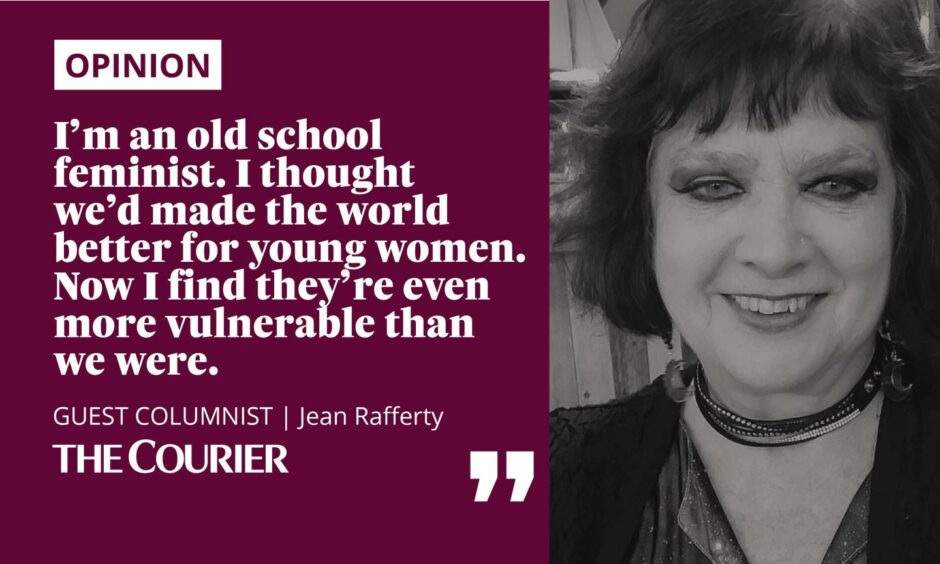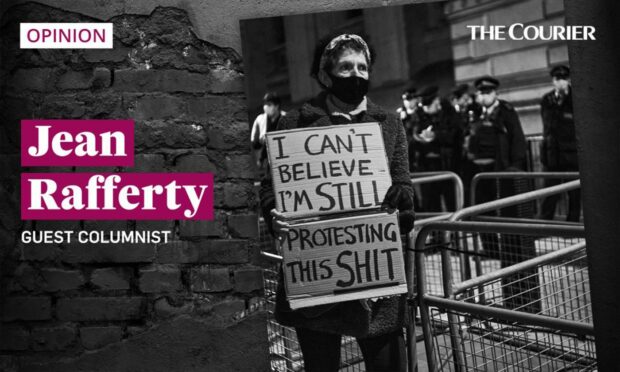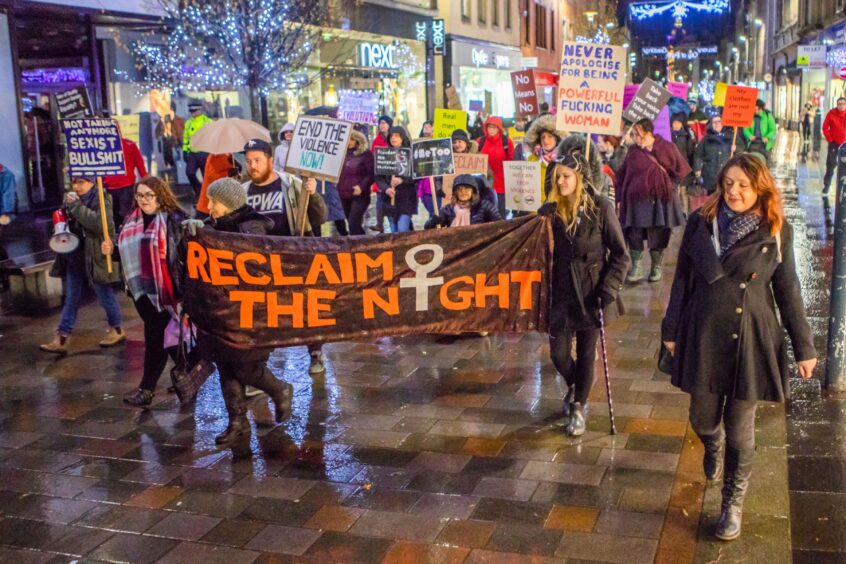.She was quirky, sardonic, an original. She made me laugh and it seemed to me a young woman like her should have had the world at her feet.
Yet she told me she’d had to have months of mentoring just to survive after being assaulted by a more senior journalist.
The other week I also spoke to a young woman who’d been traumatised by colleagues.
She’d been triggered by a discussion because she’d been the victim of a serious assault.

I’ve read articles about young women being injected with drugs in nightclubs, about a woman DJ in Glasgow needing to be accompanied by a friend because she’s continually accosted by men at three in the morning.
And I’ve read statistics from the UN, which says there’s a shadow pandemic of violence against women going on alongside the Covid 19 pandemic.
Before coronavirus struck 243 million women and girls worldwide from the age of 15 upwards were assaulted every year by men.
Everywhere the figures have increased during the pandemic – by 30% in France, 30-40% in Brazil, a threefold increase in one county in Hubei province in China.
In the UK, 81 women were killed in the 28 weeks after the death of Sarah Everard.
The 81 women killed in 28 weeks | Femicide | The Guardian. Thank you to @K_IngalaSmith @CountDeadWomen for this crucial work. https://t.co/QgZ37GQE85
— nia (@nia_endingVAWG) October 3, 2021
That’s a hell of a lot of women, most of whom we haven’t heard of. Maybe because they weren’t all blonde and beautiful – four of them were in their 80s.
What has happened to us?
Weren’t we supposed to Reclaim the Night in the 1970s?
I’m an old school feminist. I thought we’d made the world better for young women.
Now I find they’re even more vulnerable than we were.
In the 1970s I carried my copy of Spare Rib everywhere.
I spoke up when I thought I was being discriminated against and even threatened to resign once to make a point about women’s equality.
When Reclaim the Night started in 1977 I was way ahead of them.
It was at the height of the Yorkshire Ripper murders, a time when women throughout Britain were collectively afraid of the dangers of the darkness.
I had always believed rapists should stay at home, not me. And I’ve gone alone into the night all my life.
The only time I thought twice was when I was severely disabled and needing the support of a walking frame.
In my head I thought “This makes me more vulnerable”.
But I did it all the same.
Now you don’t have to leave the house to be under threat. Internet trolls will hound and harass you if you dare to express an independent opinion.
Men will fight to hold onto power
Many years ago a male friend of mine commented that whenever women began to redress the balance of power on one front, men would find a way to seize it back on another.
He was more intellectual than me and I seem to recall him discussing women in 17th century France.
You don’t have to look further back than the Second World War to see the proof though.
The women who’d been driving ambulances and nursing soldiers at the front, who’d been keeping the munitions factories manned, who’d been driving tractors and bringing in heavy crops to keep the farms going, were told to stick their corsets back on and stay at home.
It’s not pictured here, but the placard that stuck in my mind most read: “I don’t want my daughter to be protesting this in 20 years” #ReclaimTheseStreets pic.twitter.com/zqDHTdlWW9
— Alex Watson (@justthemedicine) March 13, 2021
After all women’s efforts during the war, the 1950s were a nadir for equality.
Women were advised to have their husband’s dinner on the table when he came in.
They were expected to hang on his every word, and to get up early so they were immaculate when he deigned to come down for his cooked breakfast.
As a teenager in the 1960s I found the whole idea stultifying.
I wanted freedom, independence, love, liberty, art.
I thought we were changing things forever.
And I’ve never thought the world was a safe place but I thought we’d made it safer than this.

